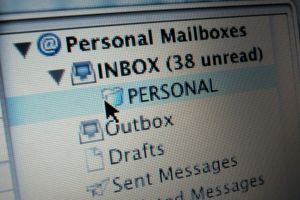6 Ideas: How To Get Stuff Done When You’re Depressed
I’ve been depressed the past few days. There are many difficult aspects to depression and one of them is being productive. When you’re depressed, each task requires energy and answering an inbox full of emails is intimidating. Having bipolar 2, I sometimes wish there was a “pause” button I could hit when things get rough. Fortunately and unfortunately, life goes on when you’re depressed. I first started honing strategies to combat depression’s effects on productivity when I was a student. In college, I battled bipolar disorder and polycystic ovarian syndrome. I was fortunate to graduate cum laude with two majors despite my obstacles. All these years later, I also live with Myasthenia Gravis, asthma, and psoriasis. Some of the techniques I learned for working despite depression now help me with my daily physical pain and fatigue. I know there is no “one size fits all” approach to any disease; no two patients’ experiences are exactly alike. But these are a few techniques that have worked for me.
6 Ways To Get Stuff Done When You’re Depressed:
1. Prioritize Tasks: Filter tasks according to urgency. I usually make a “to-do list” every night for the next day. I put 4 **** to tasks that must be finished immediately. 3 *** are for tasks that must be finished the next day. 2 ** means a task must be finished sometime this week. 1 * means it’s due next week. When I’m depressed, I ignore tasks that have two or fewer asterisks. If trying to finish a list is too daunting, highlight 3 things you want to accomplish for one day–just three things.
2. Classify Tasks According to Level of Difficulty: I classify the things I have to do as a 1, 2, or 3 where 1 = easy, 2 = moderately difficult, and 3 = hard. If I’m depressed, I focus on all the 1-level tasks first like showering and eating breakfast. As I cross off 1-level things on my list, I build up enough confidence to tackle 2 and 3-level tasks like responding to emails, writing articles, or preparing lesson plans.
3. Find an Endorphin-Releasing Activity: If you’re able to exercise, exercise is one of the best tools we have in fighting stress and depression. While I continue to take prescribed medications and see my therapist, I do much better when I exercise as I blogged about in 4 Mental Health Benefits of Exercise. Of course, the conundrum is that while exercise helps depression, being depressed can make it harder to exercise. (See my article for Bipolar Out Loud, 6 Ideas: How To Exercise When You’re Depressed.) Physical activity can break the monotony of your routine. Even 15-minutes of cardio can make my difficult situation seem less insurmountable. Exercise releases endorphins, aka “the feel good hormones,” which make me feel better about myself and my life.
4. Schedule an Appointment With Your Therapist ASAP: I try my best to catch my depressive episode at the beginning, before it gets out of hand. (Using bipolar mood charts help me with this.) Of course, it can be hard to do that every time and sometimes I miss. Mental illness, like any illness, can be unpredictable. But, if you’re already well into a depressive episode, seeing a therapist is still a good idea.
5. Give Yourself Credit: You work hard even when others don’t see it. We often don’t give ourselves the credit we deserve. When I’m fighting pain (mental or physical) or fatigue, I give myself “points” whenever I accomplish a task. For example, if I took a shower and had breakfast, I give myself points for both of those tasks. When I’m exercising, instead of saying “twenty more minutes to go,” I think, “I finished 10 minutes! Yay me.”
6. Identify Allies: “Allies” are people who will understand and help us. An ally can be a friend or a family member or a coworker who has a loved one with mental illness. 
My email response:
Hi Mike,
I’m interested in collaborating. In fact, I’d love to talk to you on the phone some time…Right now, I am going through some depression. I was in bed almost all day today. I’d like to fill out your attached questions but it won’t happen tomorrow. I will get back to you ASAP. As you know, it’s hard to balance health problems with a job…–Jessica
Hi Jessica,
I’m sorry to hear that you are going through a rough time. My cell is below…Please feel free to call whenever and fill out the sheet when the time is right. If you’d like to call this week, I’ll be available after 3pm EST each day. Take care of you.
–Your Stylist, Jessica Gimeno
For more on this subject, check out my TEDx Talk below






These are great tips! I also use a reminder app on my phone to help me get through the day. As I think of things that need to be done (like the most important things, including taking medications, eating meals, letting the dogs out), I add them with a reminder for a specific time, which helps me spread them out (or not forget them).
These tips are awesome. I especially love the starring of priority tasks, which reminds me a lot of the skills I learned recently through making a WRAP plan. This article definitely reminded me of some self-care tips I have let slide recently, but most importantly I think it reminded me that I am not in this alone. Your articles so eloquently touch on topics that so many of face on a daily basis, and are always a hopeful reminder that we can, and will, make it through.
I’m glad my article and blog are helpful to you, Amanda! I hope you are doing well these days especially under the circumstances. I keep doing videos on my YouTube channel about mental health during the era of COVID. Bless your heart!
I love it! Great ideas.
Dear Judey, I’m glad to hear it. Thank you for the feedback 🙂 Jessica
Pingback: 'Fashionably Ill': Jessica Gimeno Tackles Mental Health, Chronic Pain with Style
Really appreciate your article. Today I have granted myself a “pajama day” because I’ve been trying too hard and failing. But tomorrow I’m going to retread your article and start afresh in hopefully a more manageable and gentle – to- myself way. I’ve been ill for a while and it’ll be a while longer till it gets better, and I’m glad I found your article. Maybe it’ll at least start being a little more productive:). Thank you!
Dear Jessica,
today I watched your Ted Talk about how to get stuff done when you’re depressed, and I was really happy when I heard your advice (and especially that it was not only a misleading title of the video). I noted down *Proactiveness *Difficulty * Urgency and I feel that it will really help to combat this feelings of total helplessness and inability to get things done when I’m depressed. Thank you for sharing this simple, but helpful advice and I hope that many more people will read it!
Thank you!
Hello Dorothea,
Thank you for taking the time to leave such a kind comment. I am glad you found my TEDx Talk helpful. I have a book coming out on the same subject as the talk that goes into more depth than what I could do in 15 minutes. Hope you will find it helpful too. Blessings, Jessica
Dear Jessica,
Today I watched you talk on TED and I would like to ask you if you are considering EMF exposure (especially microwave radiation from cellphones, wifi, every kind of wireless devices and antennas…) I would like to sugest you to take a look at he work of Dr Devra Davis. EMF´s can really trigger brain and nervous system inflamation. Not only the brain, our reproductive system and also skin (Check the Dr. Olle Johanson´s researchs on Sweden – and BIOINICIATIVE report). I hope you can make your own research, check wich kind of appliances emmitting EMF´s you have at home or somme cellphone antenna close to your house. Geobiology is a very important tool for improving our healt. The place where we sleeep must be free from EMF´s, to allow our body fully recover.
Please, teke care
Hi H.F., Thanks for the suggestion! I will look into EMF and geobiology. I appreciate you thinking of me. Happy holidays, Jessica
Can you clarify… I feel like tips one and two contradict one another. In one, you’re saying to prioritize the most urgent tasks and then in the next you’re saying to do the easy tasks first. My urgent tasks are writing papers for university – not easy.
Hi Alex, Thanks for writing me. I know — writing papers are super hard when depressed. A few things: What you’re describing is a clash–when urgency conflicts with difficulty, ask for accommodations as far in advance as possible. That’s what helped me in college. I never lost when I asked for accommodations in advance but I did lose when I asked after the fact. I have a script you can use/modify for asking your professors for extensions–you can download it by signing up for my free Depression Tool Kit at http://www.fashionablyillgift.com. Also, not sure if you’ve seen my TEDx Talk? (it’s on this website) But in it, I talk about breaking down a 3-level difficulty task into 1s. Aside from winning accommodations, this is important. I will literally tell myself to write my name on the paper, and then write one sentence. You can break up the entire paper into smaller tasks like write 1 paragraph, write 1 page. Feel free to email me at jessica@jessicagimeno.com. P.S. I know this can be complicated — definitely doing college with depression is hard. I have a book coming out on getting stuff done when you are depressed, which will go into all of this in more depth. Stay strong, Alex!
Pingback: Day 1 – Going Keto
I don’t know when life is going to knock me down & I will feel depressed (am not bipolar).I get what seems to be random hate mail from one of my parents,among other distressing situations & I’m not in a situation where I can cut them off from my life completely.I would love any tips on how to deal with this,its difficult to prepare because my good days are so few,most of the time I’m already behind on things one needs to do in daily life… I can’t rely on friends so much because they have busy lives with their own problems & I don’t have many close relationships in my extended family.
Any tips would be wonderful,thanks!
sure, let’s communicate about this via email — since you’re on my newsletter, we can go back and forth there. I’m sorry you have to deal with this–I have some experience here myself. *HUGS*
Pingback: How To Get Stuff Done When Depressed (7 Great Tips) | OptimistMinds